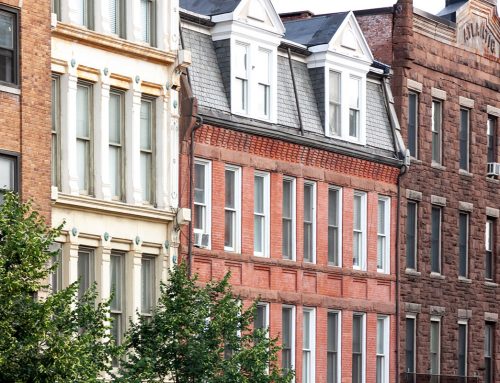Answers to common questions about making offers to buy a home, including strategies in competitive housing markets.
What’s Below:
What’s the best way to decide how much to offer for a house?
When making an offer to buy a house, what’s the best way to protect myself from a deal that might not work out?
When making an offer to buy a house, what are useful strategies for making an offer in a competitive market?
Does a house seller need to take the first offer that comes in?
What is a house “closing”?
Do I need an attorney for a house closing?
What’s the best way to decide how much to offer for a house?
Once you’ve found a house you like and have the financial resources to buy it, you must decide how much to offer. In putting together your actual offer, consider the following factors:
The advertised price of the house. Treat this as only a rough estimate of what the seller would like to receive, and recognize that different sellers price houses very differently. Some sellers deliberately overprice, others ask for pretty close to what they hope to get and a few (often the cleverest) underprice their houses in the hope that potential buyers will compete and overbid.
What you can afford.
What you can pay for a house will probably depend on how much you already have in cash and how much you can reasonably borrow in a mortgage. When figuring out the cost of the house, be sure to factor in your share of the closing costs, which will be about 2%-5% of the purchase price.
Prices for comparable houses. Before making an offer to purchase, you should know the selling prices of nearby houses similar to the one you’re interested in buying. For reliable comparable prices (called “comps” in the real estate trade), keep the following guidelines in mind:
- A comparable sale should have occurred within six months (the more recent, however, the better). In a market where prices fluctuate fairly fast, comps should be on sale within the last month or so.
- A comparable sale should be for a house quite similar to the one you’re interested in — in terms of age, size, and type and number of rooms.
- A comparable sale should be within six to ten blocks of the house you want to buy — or less, if a freeway or other dividing line splits the neighborhood.
Local real estate brokers will have good comparable sales data, and you can also find useful information online. See Comparing Sales Prices Online, below.
Whether the local real estate market is hot (prices are going up) or cold (prices are dropping). In competitive areas, homes sell quickly — often for 10%, 30% or more above the asking price — as bidding wars erupt among frenzied buyers. You’ll want to arrive at a bid amount that will beat out the competition — but only just. Then again, some buyers deliberately bid sky-high in order to stop the madness and find a home, reasoning that by the time they would have otherwise had a bid accepted, prices would have risen anyway. In a cold market, however, you’ll have more room to negotiate with the seller, and you may get a bargain.
The seller’s needs. Remember that price alone is not the only consideration for sellers. Your ability to close the deal quickly — for example, by getting loan approval or lining up inspections in advance of presenting your offer — is often crucial, especially in hot markets. Finally, your flexibility and sensitivity to the seller’s needs — whether it’s extending the closing date for a seller who can’t move for a few months or paying for repairs — may make or break your offer.
Whether the house is uniquely valuable to you. A modest house listed at a reasonable price may be a bargain if you have three kids, the house is in an excellent school district and the lot is large enough to add on a few rooms. The same house may be overpriced, however, for a couple not planning to have children. Don’t get so carried away with judging objective market considerations that you forget your personal needs.
How much you’re willing to pay. While tactical considerations — the temperature of the market, the seller’s needs — are important, nothing should overweigh your own honest assessment of how much you are willing to fork over.
When making an offer to buy a house, what’s the best way to protect myself from a deal that might not work out?
Real estate offers almost always contain contingencies — events that must happen within a certain amount of time (such as 30 days) or else the deal won’t become final. For example, you may want to make your offer contingent on your qualifying for financing, the house passing certain physical inspections or your ability to sell your existing house first. Be aware, however, that the more contingencies you place in an offer, the less likely the seller is to accept it. In the hottest markets, sometimes the successful bidder will have taken a calculated risk and made an offer with no contingencies.
When making an offer to buy a house, what are useful strategies for making an offer in a competitive market?
If demand for homes is so high in your area that you feel like you’re elbow to elbow with other eager home buyers, with home prices rising by the minute, it’s crucial to develop a bidding strategy.
For example, you might bid on several houses at once. Legally, this isn’t a problem as long as you don’t find yourself with two offers outstanding simultaneously and neither hedged with significant contingencies. If you have two offers accepted at once, you’ll need to formally revoke the one you don’t want.
Another option is to prepare several bids at different prices. If you’re lucky, you’ll know beforehand how many people will be bidding on a particular house. If so, prepare your bid accordingly. Present the lowest bid if you’re the only one making an offer, the next highest if there are only one or two other people making an offer, and your highest price if there are three or more bidders.
Think twice before you get caught in a bidding war. If you decide that a house is so attractively priced that you want to try to preempt other bidders by making the highest offer, it’s crucial that you set a limit for yourself — for example, $50,000 over the asking price and not a penny more. This way, you won’t exceed your budget and might actually save money if the house was underpriced in the first place.
Finally, remember that price alone is not the only consideration for sellers. Your ability to close the deal quickly or extend the closing date for a seller who can’t move for a few months may make or break your offer. You might also write a cover letter to accompany your offer, telling the seller about yourself, your desire and ability to take good care of the house and garden, and your interest in being flexible in order to make the deal go through.
Does a house seller need to take the first offer that comes in?
Whether it’s the only offer, or the first of many, a seller usually does not have to accept any particular offer. If a bid is way out of line pricewise, the seller is likely to reject the offer on the spot. But even very attractive offers are rarely accepted as written. More typically, the seller will respond with a written counteroffer accepting some, even possibly most, of the offer terms, but proposing certain changes. Most counteroffers correspond to these provisions of an offer:
- price — the seller wants more money than offered
- occupancy — the seller needs more time to move out
- buyer’s sale of current house — the seller doesn’t want to wait for this to occur
- inspections — the seller wants the buyer to schedule them more quickly.
The buyer may accept the counteroffer, reject it or present a counter counteroffer. Then, the negotiations will continue until either a deal or an impasse is reached.
A contract is formed when either the seller or the buyer accepts all of the terms of the other’s offer or counteroffer in writing within the time allowed. The buyer’s first offer can create a contract only if it exactly meets what the seller asked for, in price and all other terms, without adding any contingencies.
What is a house “closing”?
The so-called “closing” is the final transfer of the house to the buyer. It occurs after both the seller and the buyer have met all the terms of the contract and the deed is recorded. Closing also refers to the time when the transfer will occur, such as “the closing on my house will happen on January 27 at 10:00 a.m.” The event referred to as the closing frequently takes place at the office of a real estate professional who handles the transaction, such as a title officer or real estate lawyer.










